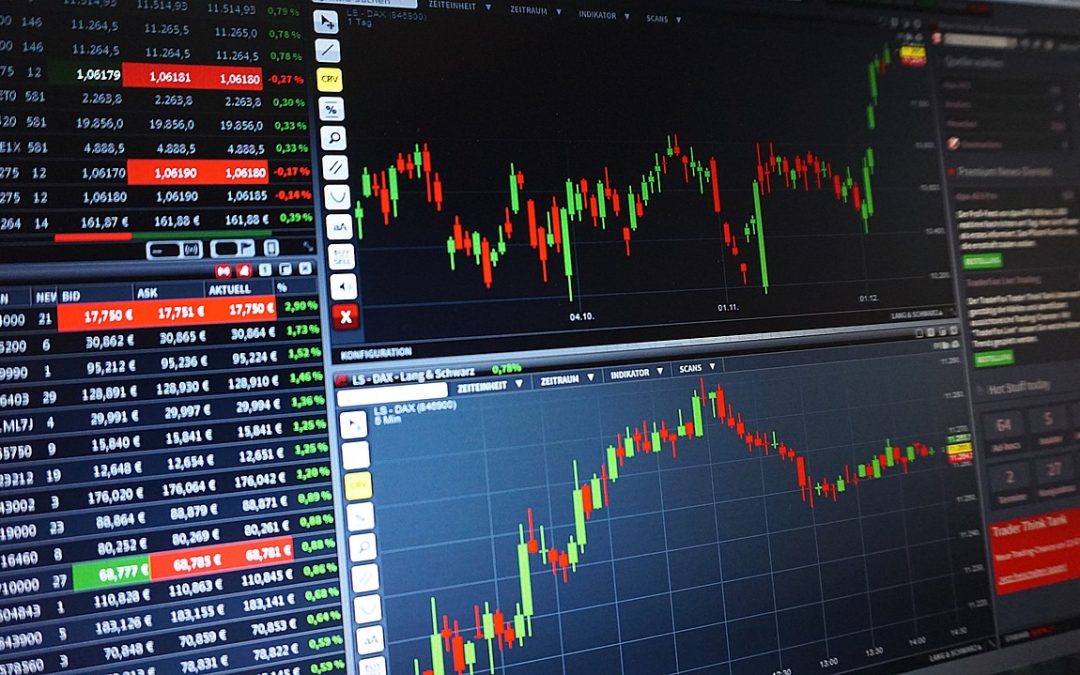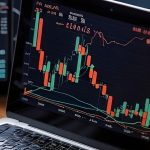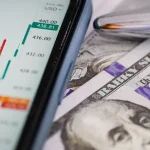Trading foreign currencies, or forex, can be an intimidating prospect for a beginner. With the market’s complex nature and ever-changing variables, it’s no wonder many feel overwhelmed. However, trading forex doesn’t have to be a daunting task.
This beginner’s guide to forex trading will help provide the basics of navigating the currency market and provide the confidence to get started on your journey to becoming a successful trader. With a few simple steps, you can learn the basics and get started trading with ease. From understanding the basics of the market to exploring various trading strategies and tools, this guide will give you the tools you need to be a successful forex trader.
- What is forex trading?
- Benefits of forex trading
- Forex trading basics
- Choosing a broker
- Forex trading strategies
- Fundamental and technical analysis
- Risk management
- Demo trading
- Developing a trading plan
- Forex trading resources
What is forex trading?
Forex trading is the buying and selling of currencies against one another. This trading of currencies is also known as a currency pair because it involves two currencies. The first currency in a forex pair is the base currency, while the second is the counter, or quote, currency.

The base currency is the one with which prices are quoted. This means that a currency pair is quoted in terms of how many units of one currency you’ll need to purchase one unit of the other currency. For example, if the dollar is trading at $0.71 for one British pound, it means that you’ll need $0.71 to purchase £1. This is the same for the British pound. If the British pound is trading at £0.75 for one U.S. dollar, it means that £1 will get you $1.25. This is a five-cent difference between the two exchange rates.
Benefits of forex trading
There are a number of benefits to trading forex. Firstly, the market is open around the clock so you’ll never have to miss out on trading opportunities. If the stock market is closed on a Friday afternoon, you’ll be able to trade forex. Secondly, there is low risk involved with this type of trading.
There is also plenty of liquidity in the market so you won’t have to worry about being unable to find a counterparty to close out your trade. This can be a problem in other markets where trading is less common. Finally, you can use leverage to increase your profits with smaller margin requirements. This means that you can trade with a smaller amount of capital to increase your profits.
Forex trading basics
There are a few key concepts to learn in order to get a firm grasp on trading forex. The first is the spot rate. This is the rate at which you can purchase one currency against another on a given day. The next key concept is the forward rate. This is the rate at which you can purchase a currency against another in the future.
These two rates can be different for a number of reasons. One of the most important factors is interest rates. If interest rates go up, the forward rate will be higher than the spot rate. This is because people will want to lock in their interest rates for the future. This means that the forward rate will be higher because it will be higher than the present interest rate. Conversely, when interest rates go down, the forward rate will be lower than the spot rate. This is because the present interest rate is lower than the interest rate in the future.
Choosing a broker
Choosing the right broker is an important part of being successful in forex trading. There are many different brokers out there to choose from. You will have to select one and open a trading account with them. Make sure that they are regulated by a government body. This will help ensure that your money is safe and that you’ll be able to withdraw it when you need to. Selecting a broker based on their trading platform is another important factor to keep in mind.
You’ll want to make sure that the platform is user-friendly so you can keep track of your trading information with ease. You should also check for any fees that the broker may charge. Make sure to find out all of the details of any fees so you’ll know what you’ll be responsible for.
List of Popular Forex Brokers:
Forex trading strategies
There are a few strategies that you can use when trading forex. The first is the forex arbitrage strategy. In this scenario, you’ll simultaneously buy and sell the same amount of currency pairs in different markets. You’ll do this to capitalize on price differences between markets. For example, if you buy one unit of a certain currency pair in one market and sell one unit of the same currency pair in another market, you’ll profit. The rate in the first market is expected to be lower than the rate in the second market.
This difference will allow you to buy and sell the currency pair for a profit. You’ll be able to close out this trade at the end of the day. The next strategy is the carry trade. In this scenario, you’ll buy currencies that have a low-interest rate associated with them. This will allow you to sell these currencies for a higher interest rate in another currency. This is generally a longer-term strategy and may not yield profits in a short amount of time.
Fundamental and technical analysis
Trading is a complex and ever-changing task. There are many different factors that can influence the value of a currency pair. This is why it’s important to employ various types of analysis when making trading decisions. The first type of analysis is fundamental analysis. This type of analysis looks at economic factors such as interest rates, inflation, and government policies to determine the value of a currency pair. The next type of analysis is technical analysis. This type of analysis focuses on past market data such as price trends and trading volumes to determine the value of a currency pair. This is a very common method of analysis in forex trading.
Risk management
It’s important to take a few extra steps to manage your risk when trading forex. The first is to set realistic trading goals so you’ll know what you’re hoping to achieve. Another important tip is to set a stop-loss order. This will help limit your losses if a trade goes against you.
You can do this by entering a sell order for your open position at a certain price. This will sell your position if it drops below that price. It’s also important to keep a trading journal. This can consist of a spreadsheet or a notebook. You should record your trading details so you can look back and reflect on your approach. This can help you find areas in which you can improve your trading strategy.
Demo trading
Before you decide to trade with real money, you should practice with a forex demo account. This will give you the chance to practice trading with fake money. This will allow you to get used to trading with virtual currency before trading with real money. It’s important to find a broker that offers a forex demo account where you can practice with virtual currency.
This will help you become more familiar with the trading process without risking your own money. With a demo account, you can practice both fundamental and technical analysis to make sure that you understand how to make trading decisions. You can also set stop-loss orders to help you avoid large losses. This will help you feel more confident when it comes time to trade with real money.
Developing a trading plan
Before you begin trading with real money, it’s important to create a trading plan. This will help you stay focused on your long-term goals so that you don’t get distracted by short-term losses. Your trading plan should include the following information:
- What currencies do you plan to trade
- Trading goals and objectives
- Trading strategies
- Risk management strategies
- Charting and analysis tools
Trading time frame Make sure that your trading plan is detailed and specific so you know exactly what you’re aiming to achieve when trading currencies.
Forex trading resources
With the right knowledge and guidance, you can be successful in forex trading. There are many different resources that can help you along the way. One of the most important resources is the forex market itself. This market is very complex and ever-changing, so it’s important to stay up to date with the latest news and information.
Finding a reliable forex news source can help you stay informed. Another valuable resource is forex trading books and blogs. These can help you gain insight into the forex market and find forex trading strategies that suit your style.
Popular Forex New Sites:








